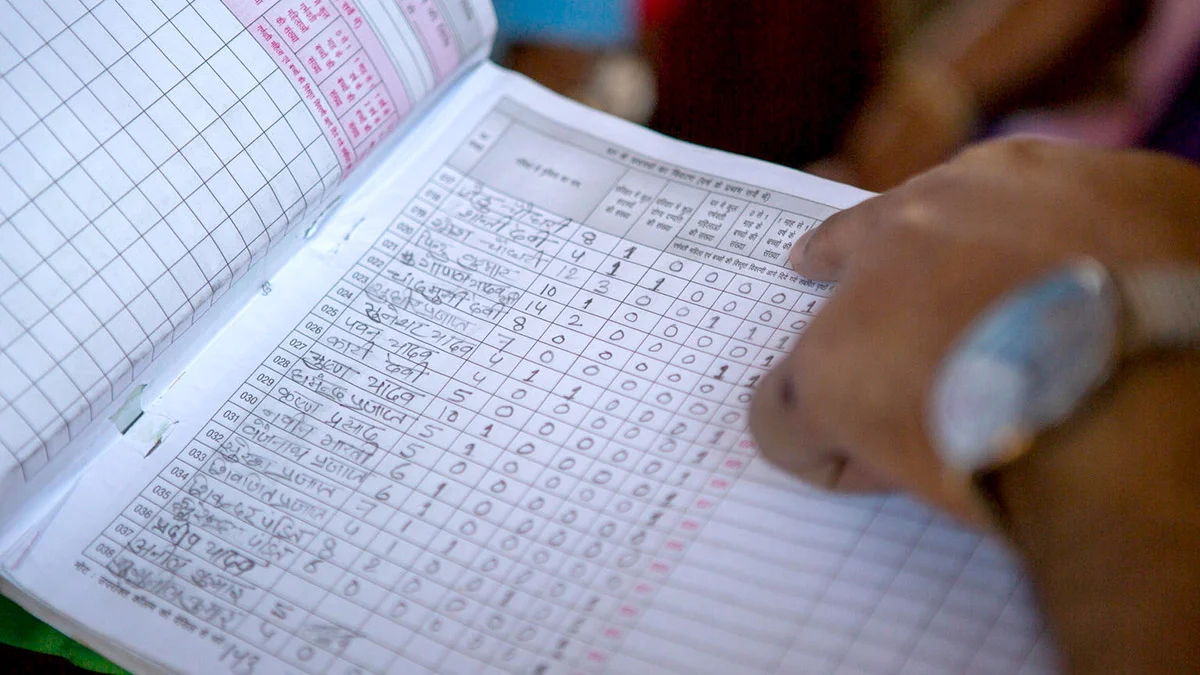Without data there is no knowledge; without knowledge there is no progress. UNICEF compiles existing data on the situation of children and creates new data of its own. Among other things, these facts and figures enable UNICEF to influence decision-makers and the political agenda.
International data and studies
UNICEF helps governments collect data on the situation of children and women with the help of the Multiple Indicator Cluster Survey program, known as MICS. This enables them to compile sound and internationally comparable data on areas including education, health, equality, rights and protection, and highlight changes in the situation. UNICEF provides technical support and workshops on survey implementation and data management.
Data from all countries is compiled annually and published at www.childinfo.org and in a publication entitled “State of the World’s Children”.
Research on relevant issues is conducted at the UNICEF Office of Research – Innocenti in Florence. UNICEF works with academic institutions and development cooperation partners to promote international understanding of child rights issues and the implementation of the Convention on the Rights of the Child worldwide. There are two key series of publications in this area:
- The Innocenti Report Card series monitors and compares the performance of economically advanced countries in protecting the rights of their children. Using OECD data, the Report Card tackles issues such as mobbing, educational success, nutritional behavior and relative child poverty.
- Innocenti Insight takes an in-depth look at a specific, usually complex, children’s rights issue, such as female genital mutilation or child trafficking.
Related links:
- UNICEF publications: http://www.unicef.org/publications/
- UNICEF Office of Research: http://www.unicef-irc.org/research/
The situation of children in Switzerland and Liechtenstein
Switzerland and Liechtenstein lack representative data on the situation of children and young people. They are seldom considered and almost never asked their opinions. Regular representative monitoring is necessary in order for child rights to be respected.
This gap is to be closed with the Child Rights Barometer, developed by UNICEF Switzerland and Liechtenstein together with OST – Eastern Switzerland University of Applied Sciences.
Additional studies and publications on the situation of children in Switzerland and Liechtenstein:
- Children’s Rights from the Perspective of Children and Young People: In the spring of 2020, UNICEF Switzerland and Liechtenstein conducted an online survey of children and young people between the ages of 9 and 17. Their responses revealed various challenges and gaps in the implementation of the Convention of the Rights of the Child. This study became the cornerstone for the Child Rights Barometer.
- UN Reporting: The data collected from the survey mentioned above was used to compile an Alternative Report. This report was submitted to the UN Committee on the Rights of the Child in Geneva as part of Switzerland’s reporting procedure.
- Youth mental health: The study, conducted in 2021 by scientists at Unisanté on behalf of UNICEF Switzerland and Liechtenstein, aimed to identify risk and protective factors for the mental health of young people in Switzerland and Liechtenstein.
- Children's rights and companies in Switzerland and in Liechtenstein: In 2012, UNICEF, UN Global Compact and Save the Children developed and released the publication Children’s Rights and Business Principles (CRBP). In 2022, on the occasion of its tenth anniversary, the three organizations published a report on the progress that has been made in integrating children's rights in business and where action is still needed.
- Vulnerable children in Switzerland: In its study “From Child Protection to a Children’s Rights State: Strengthening, Protection and Promotion through the Comprehensive Implementation of the UN Convention on the Rights of the Child”, UNICEF analyzed whether children’s rights are implemented systematically in Switzerland, particularly among vulnerable groups. The study examined topics such as poverty, (sexual) violence and children with a background of adoption, and also how children are included in the drafting of cantonal and national legislation.
Innovation and pilot projects
New ideas and approaches play an important role in UNICEF’s program work. Advances in technology and science directly benefit children thanks to UNICEF and private, public and academic partner organizations.
Many advances over the last few decades have simplified our lives and improved our quality of life. UNICEF harnesses this knowledge, focusing on the challenges faced by the most disadvantaged, such as children in hard-to-reach regions and in crisis and conflict zones. Innovations are first tested through a pilot project, with the results evaluated so that they can then be optimized and implemented across the board.
Innovation is also essential to our program work. One outstanding example is Giga, a global infrastructure initiative with the aim of connecting every school to the internet and creating access to information, opportunities and choices for young people. 1.3 billion children have no internet access at home, and only about half of the world’s schools are online – UNICEF is doing important work to improve this situation.
New approaches can also lead to faster and more sustainable solutions to other complex problems, such as combating youth unemployment: young people make up 60 percent of all unemployed in Africa. Many do not attend school or vocational training. UNICEF’s Yoma initiative is taking on this challenge. Young people can access a digital platform with courses and workshops where they can acquire important skills. A network of corporate partners provides support to help these young people apply in business the skills they have learned and gain access to the labor market.
Related links:
